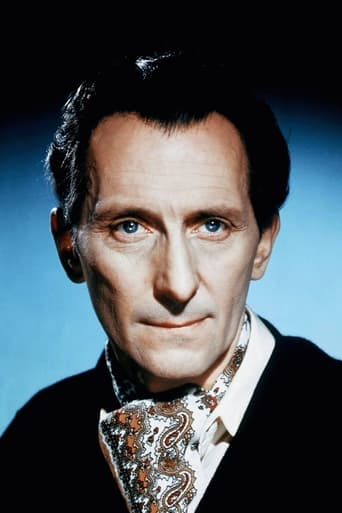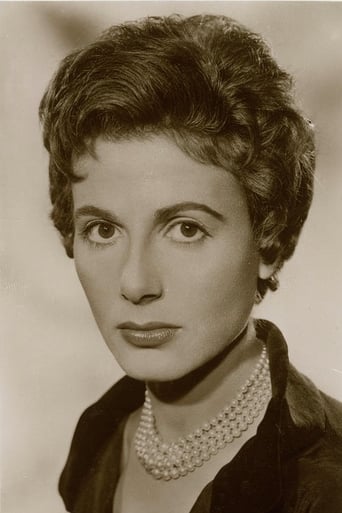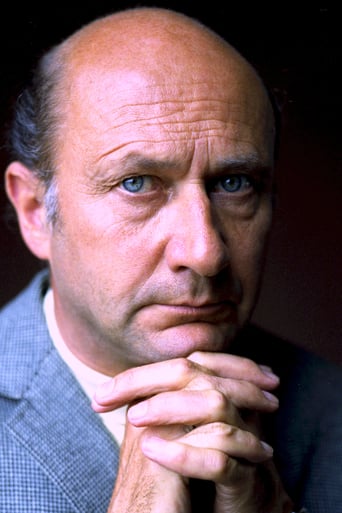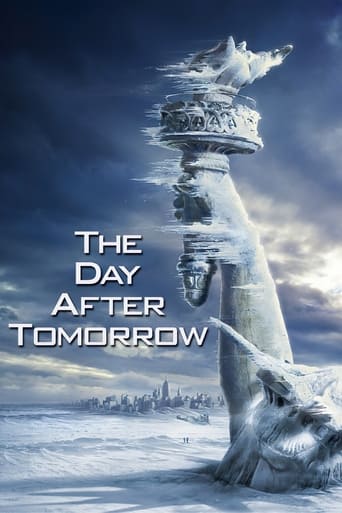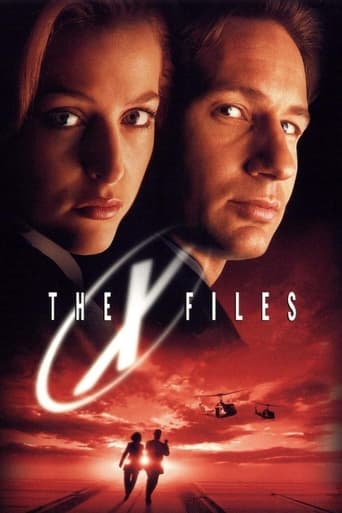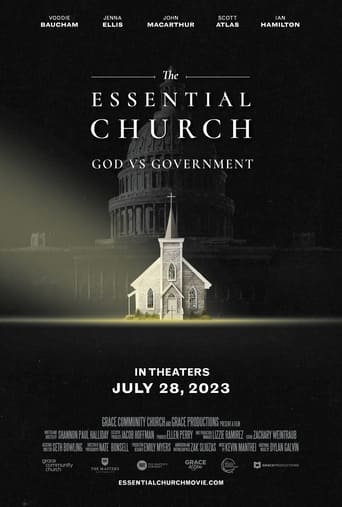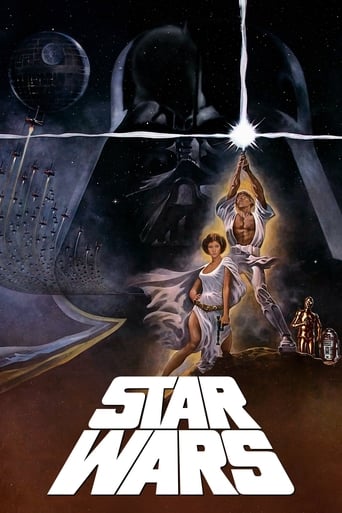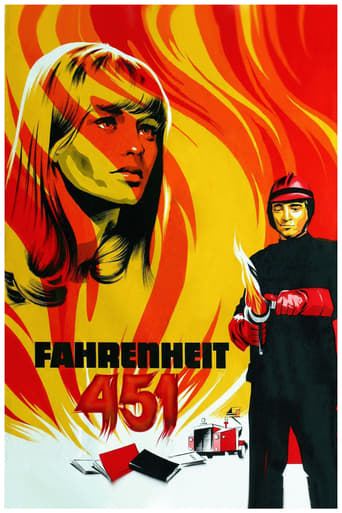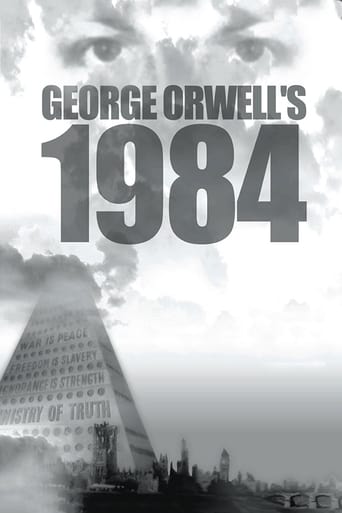
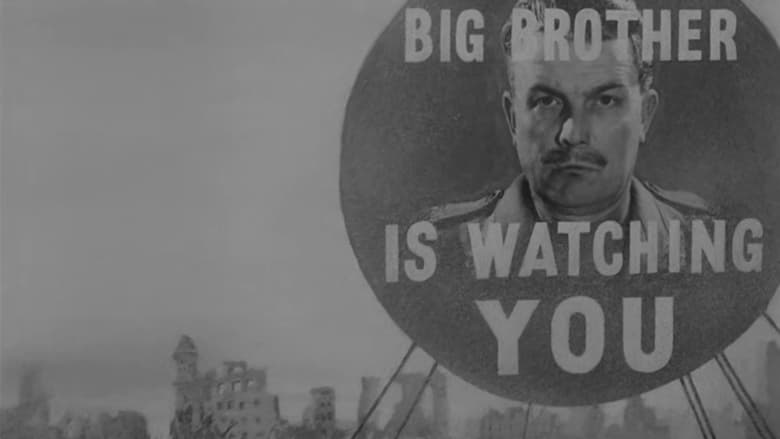
Nineteen Eighty-Four (1954)
A man who works for 'The Party' (an all powerful empire led by a man known only as 'Big Brother') begins to have thoughts of rebellion and love for a fellow member. Together they look to help bring down the party.
Watch Trailer
Cast
Similar titles
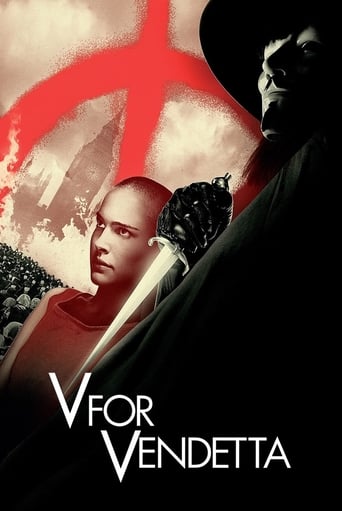

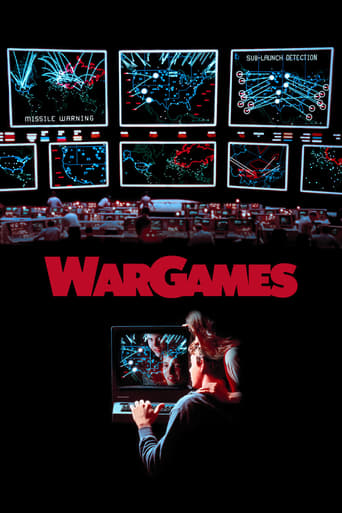
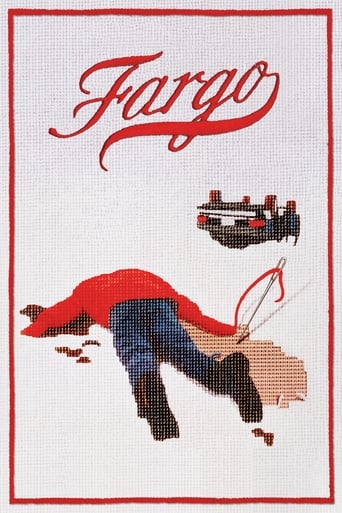
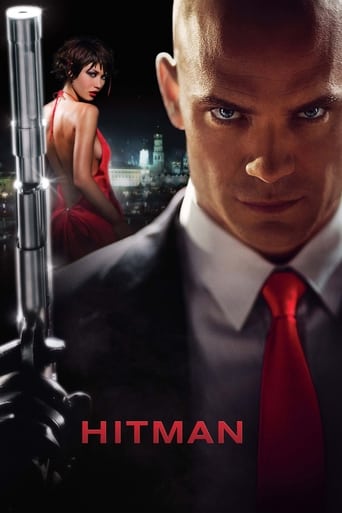
Reviews
It's no definitive masterpiece but it's damn close.
Best movie of this year hands down!
I like movies that are aware of what they are selling... without [any] greater aspirations than to make people laugh and that's it.
An old-fashioned movie made with new-fashioned finesse.
The Dec 12 1954 live BBC telecast of Orwell's "Nineteen Eighty-Four" changed the career for star Peter Cushing forever after. His depiction of Winston Smith brought him to the attention of Hammer Films, who spent two years trying to sign him to a film, while a prolific string of teleplays kept him busier than ever. He deservedly won the Guild of Television Award for Best Actor for his performance here (the British equivalent of the American Emmy), yet was passed over for the feature version for Edmond O'Brien (only Donald Pleasence was retained from the BBC version, in a different part). In a repressed future society where 'War is Peace,' 'Freedom is Weakness,' and 'Ignorance is Strength,' thoughts and feelings are outlawed by the totalitarian government. Daring to love Julia Dixon (Yvonne Mitchell), Smith knows that there is no escape for them, only that 'some kinds of failure are better than others' (forbidden fruit is the best of all). Some critics rightly complained that Yvonne Mitchell's Julia lacked 'warmth,' but there was nothing but praise for Andre Morell's chilling O'Brien (replaced in the movie by Michael Redgrave), overseeing final punishment, using their own fears against them to completely wear down all defenses (no trace of humanity). As grueling as it is to watch now, one cannot imagine how shocking it must have been for viewers 60 years ago.
This is the fourth and probably the best version of "1984" that I have seen. There's a decent version with Edmund O'Brien that is hard to find, one made for TV ("Studio One") and the more recent version with Richard Harris and John Hurt but for me, this made for TV British version is best for three main reasons. First, Peter Cushing was a dandy actor and did a fine job. Second, the book was set in London and the British accents made it work better than the American versions. Third, despite the very, very small budget, the cheap sets worked just fine--as they were able to provide an appropriate level of greyness for the story. A bigger budget really couldn't have helped in this way. Overall, it's well worth seeing and is available for free download at archive.org--a website frequently linked to IMDb.
1984 is Orwell's legendary cerebral work . It's a novel that is bleak , downbeat and philosophical . It seems something of a pity however that much of his other work is overlooked such as his essays . Notes On Nationalism for example is a scathing attack on those people who are " anti-war " but whose bitter condemnation of conflict is only heard when it's waged by the democracies of Britain and America . It was written in the spring of 1945 so fundamentally it's far more prophetic than 1984 but 1984 is considered Orwell's masterwork Scriptwriter Nigel Kneale is - Like much of Orwell's work - somewhat forgotten today . He was once a household name in Britain due to both this adaptation of 1984 and the Quatermass serials . Regretfully it's forgotten how controversial the teleplay was when it was broadcast away back in December 1954 , so controversial that the houses of parliament debated television standards after the BBC was deluged with complaints . Perhaps this collective amnesia works in its favour when viewed today ?You have to be slightly forgiving when viewing 1984 . It may seem talky and static compared to even 1970 British television but if you compare it the same production team's THE QUATERMASS EXPERIMENT the year before which had the same production values as a school play you'll see how far things have come in such a short space of time . It's also noticeable how much Rudolph Cartier has been influenced by German Expressionist Cinema . We see nods to it here and see it even more explicitly in QUATERMASS 2 Kneale's script does contain a slight hiccup at the beginning when we're told of atomic wars and shown a vision of a devastated London . It's difficult to believe a nation that has survived such a catastrophe and still have the technology of telescreens but this is soon forgotten and we get on with the story proper . Kneale has a written a great adaptation on a novel that is probably impossible to film . Much of the novel's mechanics has Winston Smith thinking to himself and the subtext involves the idea that both personnel Utopia and societal Utopia are mere delusions that should never be sought . All the bits you remember from the novel are here and they're easily understood . Compare this to the 1984 movie by Michael Radford where the story is confused and you'll see how well Kneale has done in doing the impossible The cast are good and there's little in the way of over emphatic performances though they are sometimes noticeable when they do appear but they're nowhere as bad as some that plagued television in the 1950s . There is the slight problem of middle class extras giving it " Cor blimey guv " working accents but having heard David Tennant's mockney accent in DOCTOR WHO for several years I've become immune to them . It's also a novelty seeing Cushing and Pleasence both most famous for horror films appearing on screen in a story about the horrors perpetrated by humans on one another . The stand out performance though belongs to Andre Morrell as O'Brien . Morrell was a prolific British actor in film and television and painfully underrated . He is absolutely outstanding in the torture scene with Cushing where he gives a virtual soliloquy on the metaphysical aims and existence of the party . It's this scene you'll remember long after the rats in Room 101 which caused so much controversy All in all this is a legend of television based upon a legendary novel . There's an argument that both are overrated and I'll probably agree with you on Orwell's novel but that's probably because I believe the author should be remembered more for his other works and how he lived his life . I should state also QUATERMASS AND THE PIT is my favourite of Kneale's wonderful work . Nevertheless this is a milestone of television and should be celebrated as such
Strange that the first visual adaptation of George Orwell's landmark work of paranoid propaganda should be created for live television. Here we have a strong parable about the use of TV monitors as invaders of our privacy; where Big Brother can keep us under constant surveillance, by watching us when we can't watch him. From this we find a medium that Orwell envisioned as a destroyer of society as we know it, presenting his text to us in a conformed, largely watered down form.This was intriguing enough to lead me back to Orwell's original book; a work that I hadn't delved into for quite some time. Having now done so, it is shocking to see that in the wake of the abundance of literary creativity that we have seen flood in since the close of the Second World War, just how commonplace the ideas behind Orwell's work has become. The central message of a totalitarian Government threat is still particularly relevant, though the way in which the author handles this has more to do with advertisement slogans than a serious understanding of uniformed political agendas. The world that the writer creates is of documentary fact rather than imaginative fiction; presenting us with a war torn world on the brink of collapse; where fear runs through the hearts of every citizen who is forced to cower in an underground bunker, waiting for some kind of message that all is well.This then, is basically a travelogue around the Post War London that Orwell and the rest of the British public saw after the many devastating German air strikes of 1943. The fact that this moved Orwell to such an extent that it dictated how his narrative should flow is commendable, in terms of truthful artistic expression. However, I believe that both Burgess' A Clockwork Orange and Atwood's The Handmaid's Tale gave us a much more imaginative and emotionally wrought evocation of a totalitarian society, than what we have here. But regardless, this brings me back to the first actual rendering of the text as we have it; this 1954 BBC adaptation. Here we have a script by Quatermass and the Pitt author Nigel Kneale, with Peter Cushing, Andre Morell and Donald Pleasance filling out the roles.The acting is understandably strong, with each of the central performers managing to bring to the film the right level of presence and paranoia, but sadly, they are wholly let down by the limitations of the TV script and direction. Though the black and white imagery is impressive, as is, on some occasions, the use of framing, this has much more to do with the creative restrictions imposed upon the medium at that time, rather than anything approaching visual imagination. The writing though is the main problem, trying to develop almost all of Orwell's text whilst substituting an effective pace or even a rewarding framework; also, the continual use of 1950's sci-fi philosophising - before Star Trek and before Doctor Who - now seems slight and uninformed.Having said that... I am in no way stating that staff writer Kneale and director Rudolph Cartier aren't talented in what they do; rather that they are not free to the possibilities of opening up (and dare I say improving on) Orwell's original text in a truly visual sense. Here we could have had an outlet for all kinds of internal dilemma, angst and social conflict, but what we get instead seems more like a missing episode of The Prisoner. This is television of the academic variety; an essay guide for lazy English lit students who can't get through the book. It may also hold a degree of interest for those with a desire to see a young Cushing and Pleasance burning holes in the TV screen, but for anyone else; the appeal may be limited.
